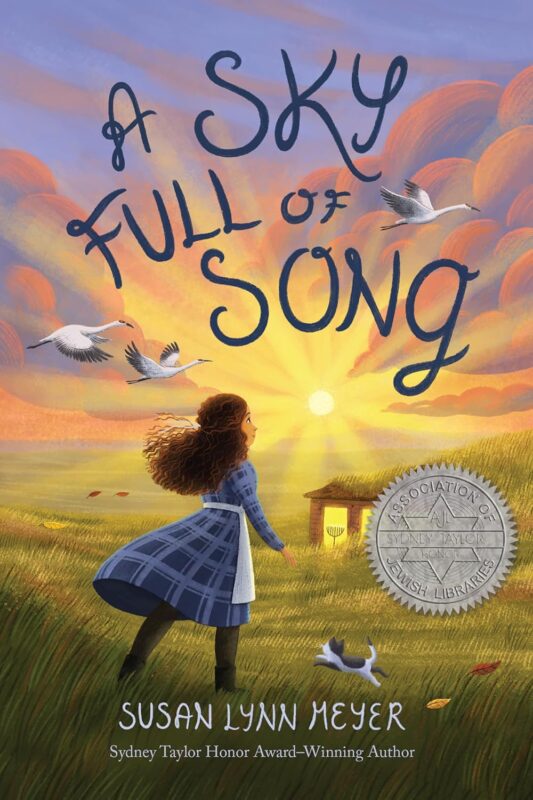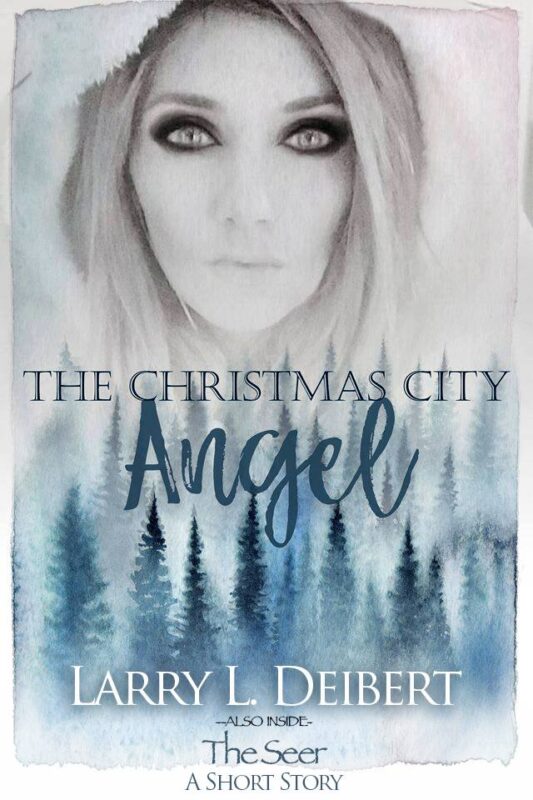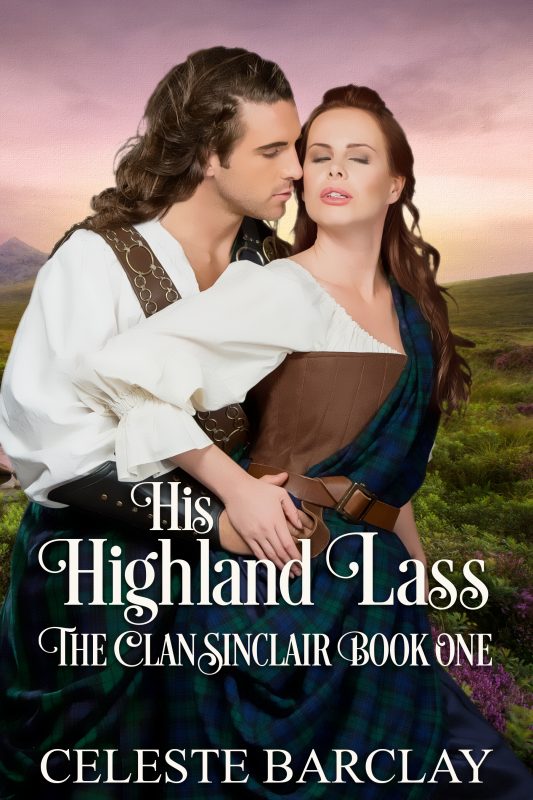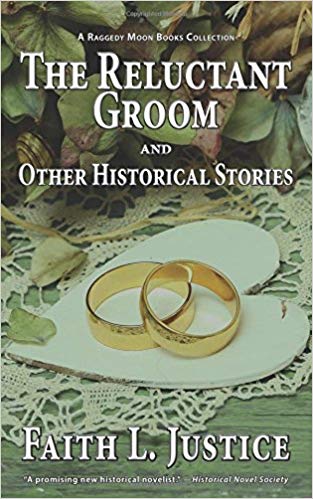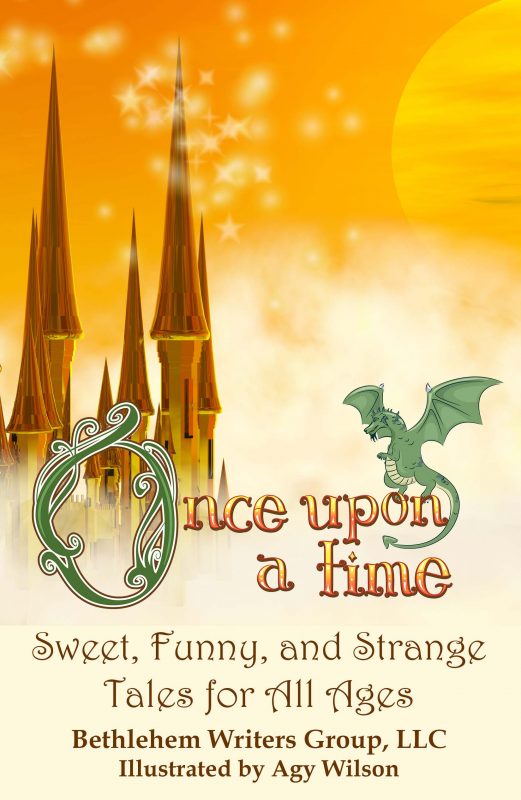Dianna Sinovic, Featured Author
July 1, 2025 by Dianna Sinovic in category Featured Author of the Month tagged as Dianna Sinovic, Featured Author of the Month, Quill and Moss, Scream of the Silent Sun, Short Stories
Author of the Month: Dianna Sinovic

Born and raised in the Midwest, Dianna has also lived in three other quadrants of the U.S. She writes short stories and poetry, and has just released a full-length novel, Scream of the Silent Sun.
She is a member of Sisters in Crime, Horror Writers Association, The American Medical Writers Association, and The Bethlehem Writers Group, LLC.
Dianna is a contributing author in the last four anthologies from The Bethlehem Writers Group, Season’s Readings: More Sweet, Funny, and Strange Holiday Tales, An Element of Mystery: Sweet, Funny and Strange Tales of Intrigue, Fur, Feathers, and Scales, Sweet, Funny Animal Tales and Untethered, Sweet, Funny & Strange Tales of the Paranormal. She has also contributed stories for the Bethlehem Writers Roundtable ezine, including “In the Delivery.”
Dianna also has a regular column here on A Slice of Orange, titled Quill and Moss, in which she frequently includes short fiction.
Other books by Dianna Sinovic
Washed Up
June 30, 2025 by Dianna Sinovic in category Quill and Moss by Dianna Sinovic, Writing tagged as Jersey Shore, mystery, writing
“Did I tell you about the time Aunt Jen and I found a wooden box on the beach?” Molly pulled her jacket tighter against the chill that had descended along with the sunset. Her three kids sat around the fire with her, listening to the crackle of the flames as the night around them darkened.

“A treasure chest?” Aaron, the romantic in her crew, clapped his hands in anticipation. She smiled. Of course his imagination would leapt to a tale of pirates and doubloons. This was his birthday weekend, the reason they were camping.
“I’m afraid not,” Molly said. “It was a small box, room for only two or three coins. That’s not much booty.” She held up her hands to mime the size—more of a ring box than anything.
Aaron’s face registered disappointment, but Lara perked up. “Jewelry!” She was a year older than Aaron. “Earrings and gold strands, I’ll bet.”
Not willing to be outdone by his sister, Aaron immediately countered. “It was a tiny map that led to buried treasure.”
“No.” Treena, at thirteen, two years older than Lara, filled the captain’s role for Molly’s gang of three. She offered her pronouncements calmly but forcefully. One day she’d be a CEO, Molly predicted. “Let Mom finish her story. I doubt it was any of those things.”
“Do you want to venture a guess?” Molly put another piece of wood on the fire. They were camped on a friend’s property, on their way to the Jersey Shore, their destination for tomorrow. “What I remember best was that the top of the box had an octopus carved into it. Its tentacles hugged the sides.”
“Where is it now? Or did you lose it?” Treena’s gaze challenged Molly, a more and more frequent occurrence these days. And just like the teen to hit on the stickiest part of the story.
What possessed me to bring up the box?
“Your dad took it when he left.” Molly stirred the fire again to buy some time. “So, no, I don’t have it. He may have tossed it.” Like so much else Kurt had tossed in their lives. It took years of not seeing that—until the day it was so obvious she cringed.
“You still haven’t said what was in the box.” Lara was hopping from one foot to the other.
“And why would Dad want to take it when it was yours?”
Precisely because it was hers. She’d searched for it in the days after he walked out, even as she grasped that the empty spot in her drawer was there because he couldn’t resist one last blow. Still, she refused to talk trash about her ex; he had visitation rights.
“In the box …” Molly let the words linger. “No gold coins, no jewelry, no treasure map. Aunt Jen was probably thirteen, like you, Treena. That would have made me twelve.” She’d kept the box despite its warped wood and a chipped corner, despite Jen’s worry it was infested with sand fleas (it wasn’t). She’d kept the box as a memento of her childhood, of a time when Jen was strong and healthy.
“When we pried it open, we thought we’d find a note written by someone who was lost at sea.” It hadn’t occurred to them that any paper note would have turned to pulp.
“But it was empty,” Treena said. Her tone shaded in her opinion: stupid story.
“It was not empty.” Nestled inside was a pair of dog tags, pitted and corroded by years soaking in saltwater. She and Jen could make out the soldier’s first name, but the last name and military ID were undecipherable. Blood type O+, religion Lutheran. They guessed Navy, but it could have been Army—only the “y” at the end of the word was clear. They also guessed at the war, the same one their great-grandfather had fought in.
For years, Molly studied the dog tags and wondered. Was he already dead or about to drown when the tags were stashed in the box? Who would have removed them and why? His imagined face surfaced in her teenage dreams; a young face, of course, a face far different from the man she ended up marrying.
When their third child was born—finally, Kurt said, a son—she named him Aaron, to honor that long-dead sailor. Kurt didn’t understand her fascination, and maybe she didn’t either. She just knew she was drawn to the stranger.
“Your namesake,” Molly finally said to her son. “That’s what was in the box. That’s why I told the story tonight. It’s a true birthday tale.”
More of Dianna’s stories
Down to Earth
May 30, 2025 by Dianna Sinovic in category Quill and Moss by Dianna Sinovic, Writing tagged as climate fiction, short fiction, writing
Lily pressed her flowered handkerchief to her forehead and wondered for the fifth time that day why she had signed up for the Festival of the Earth event. The May sun beating on the roof of her canopy turned it into a DIY heat lamp. Stacks of her ecological thriller sat ignored on her table. The crowd was more interested in the pastry shop’s tent next door, the line for lunch turnovers stretching down the mown pathway from the parking lot.

She’d hoped to sell at least several copies of her book Unplugged, a fictional tale about a full-off-the-grid society; after all, its theme aligned nicely with the festival’s. In fact, the vendor on the other side of her was hawking solar panels, and she considered flagging everyone who passed her up to let them know her book was relevant—her main character had four panels on the roof of her cottage.
It didn’t help that the cumin-and-coriander aroma of the turnovers made her stomach grumble. Her packed lunch of peanut butter and jelly had lost all appeal in comparison.
Another hour in, and one book sold, to the mother of a family of three littles ready, she said, for something “more mature than Sesame Street.” Lily tucked away the cash in her pouch and watched the family stream toward the kids’ crafts tent—a place where youngsters could launch gigantic bubbles to float elongated and short-lived across the nearby park field.
She sighed. Even with the sunny weather, the day was a bust so far. Not ready to give up yet, though, she left her booth long enough to introduce herself to the solar vendor. Networking was important at sales events. Busy in the full sun, the vendor was bent over the electrical hookup for the largest of his panels, muttering under his breath. He didn’t seem bothered by the heat, even as Lily fanned herself with an event program.
“Just wanted to mention that the novel I’m selling today is about folks who embrace solar.” Lily stuck out a hand, but withdrew it when the vendor ignored her. “That’s a nice fit with what you’re selling. You know, about being unplugged.” When he finally looked up, he squinted at her with a frown. “Nobody reads books any more.”
The hell they don’t. She stomped back to her table, threading her way through another wave of potential tire-kickers for the solar cells. “Stop by my booth next,” she called to them, with a friendly wave. “I’ve got free snacks!”
But her mini-bags of pretzels were no match for the tasty turnover tent, and eventually Lily succumbed, taking a spot at the end of the long queue. She hoped the turnover supply would last until she arrived at the front of the line.
“You’re Lily Spruce, right?” The young woman at the turnover counter wrapped up a chicken turnover for her, but waved away the bills Lily offered. Her name tag read Rachael in precise hand-lettering. “I read your book on a friend’s recommendation. Really, really good. This is my contribution toward your authorial efforts.”
“Wow,” Lily managed to say. “Thanks.” Back at her booth, she savored the unexpected treat—from an unexpected fan. The day was worth it for that, if nothing else, she decided. And a breeze picked up, carrying away some of the tent’s stifling warmth and bringing with it the faint rumble of thunder.
It was then that she noticed the advancing cloud bank. Checking her phone, she skimmed the severe weather warning. As though one of the next-door solar panels had activated, the energy of the crowd changed to one of urgency. Already the wind increased, making the canopy tents pop and threatening to send them aloft. The line dwindled to nothing for Rachael, the turnover vendor. The kids’ craft tent emptied, and people hurried toward the parking area.
Lily packed away her books, wrapping them in plastic against the approaching rain, and pulled out her rain slicker. The smell of rain mixed with the lingering aroma of cumin and coffee.
In the next booth, Rachael struggled against the wind to take down her canopy. Lily sprang into action. “Let me help. And then maybe you can help me with mine.”
Rachael looked up, surprised. “Sure thing.”
Together they collapsed the canopy, working in a light mist. Then they tackled Lily’s, and slipped the tent into its sleeve just as the mist turned to rain.
The park stretched out beyond them, now empty. Only a few vendors remained; the rest had fled.
Rachael pulled her wheeled cart onto the pathway, heading for the parking area. “So much for a festival for the Earth,” she said. “A pity it’s rained out.”
Wasn’t that the definition of unplugged? Lily pictured her novel’s protagonist, facing whatever Mother Nature threw at her: storm, drought, flood, heavy snow. You were thankful for sunny skies when you got them, but the changing weather kept things interesting.
“It’s all part of life,” Lily said with a shrug. “But hey, we can make the most of it. Let’s go grab a beer and commiserate.”
Dianna Sinovic’s Books
Financial Fore-cast
April 30, 2025 by Dianna Sinovic in category Quill and Moss by Dianna Sinovic tagged as Dianna Sinovic, flash Fiction, magic, Spells
The accountant opened the folder and skimmed the stack of documents it contained. A W-2, 1099s, receipts, investment summaries, it was all there, Annie hoped. Matt always left it up to her to compile the papers needed before they sat down with Tom, their CPA. Her business was laden with supply orders, customer invoices, and back-end pay-outs. Matt worked in analytical statistics for a pharma company: salary, health insurance, 401(K), easy-peasy.

“This expense here.” Tom tapped his finger on a receipt. “Shadow essence. For your shop?”
“Yes. I go through three boxes a week, minimum.” Annie had opened her store, A Spell on You, three years ago and had yet to turn a profit—a sore point with Matt, who was used to assessing revenues in the hundreds of thousands.
“How much longer are you going to play at this?” he’d groused several days ago as she was assembling the folder for Tom. “Give it up. Get a real job.”
“I’m not playing. This is my dream and I’ll make it work.”
“Yeah. Conning people into thinking you can ‘cast spells.’” Matt didn’t believe in magic; he believed in numbers. “Numbers don’t lie.” His favorite three words to live by.
Annie knew in her bones she was the real thing. Her testimonials were glowing. Her repeat customers came with a list for her to work through. If only there were a few more customers. Still, imposter syndrome ate at her, and Matt’s griping made it worse. She didn’t want anyone to know she was uncredentialed, a seat-of-the-skirt kind of gal, when it came to spelling. But books on spell craft filled three full shelves in her shop’s back room, and she’d memorized most of them.
Tom coughed politely, and Annie pulled herself back to the present.
“Sorry,” she said, her face hot. “Did you have a question?”
Matt sighed in annoyance. “Come back from la-la land, bae. Tom doesn’t have all day for you to daydream your way to financial success.”
Putting his readers on, Tom smiled kindly at her. “I’m in no hurry.” He turned back to the folder and held up another sheet. “Now this one for spider milk.”
And on they went, with Tom asking questions, to which she supplied explanations, while Matt rolled his eyes.
At the session’s end, after shaking hands with Tom, they stood at the elevator. The doors swished open, and Matt strode into the empty car, his anger obvious in the set of his jaw.
“Next year, we file separately,” he said. “I’m tired of this hocus pocus shit.”
“Let’s try something,” Annie said, as the car descended, with a clunk, from eighth to the lobby. “You don’t believe in magic, so we’ll put it to a test. See who’s right.”
Chuckling, Matt shook his head. “Can’t you see how ridiculous you are?”
She cocked her head, moved her feet in a patterned sequence, and spoke in a monotone. “Five, twenty-three, fourteen, thirty-nine …” She continued on with a handful of additional digits. It was a spell she’d been waiting to use, patiently watching for the perfect moment.
A low groan filled the elevator, and Matt sagged against the rear wall. His eyes held panic—understandably, since he could no longer move or speak.
The car settled on the ground floor, and the doors swished open.
Annie smiled sweetly at her husband. “Matt, dear, I agree with you. Numbers don’t lie.” She walked out of the elevator, leaving him where he was.
More of Dianna’s Stories
Plans Best Laid
March 30, 2025 by Dianna Sinovic in category Quill and Moss by Dianna Sinovic, Writing tagged as crime fiction, short fiction
The conversations murmuring around her provided white noise for Erica as she sat at her laptop in the busy coffeeshop. One more chapter to finish. Then a scrap of an exchange broke through her deep concentration.

“He’d kill us if he had the chance.”
She glanced up, her eyes focusing on the photo of a sailboat framed on the wall, trying to hear what the couple said. From their voices, it was a man and a woman. They were at the table immediately behind her.
“We’ve got to do it.” The woman spoke calmly, as though they were discussing vacation get-away plans.
“When?”
The roar of the latte-maker drowned out any response from the woman. Erica shifted in her seat, feigning a look in her backpack in order to see the couple. Just a quick glance, nothing to let them know she’d overheard. Both in their mid-thirties. The woman pretty in an old-fashioned way, with dark, sculpted curls that tucked under at her neck. The man with a hint of chisel in his features, white-blond, short-cropped hair.
Erica pulled out a notebook she didn’t need to make it clear she had purpose to dig into her bag. The machine noise stopped abruptly, leaving only the gentle background jazz piped over the shop’s speakers.
With her back once again to the couple, she pretended to write.
“Do you think he knows we’re here?”
The man laughed. “Almost certainly.”
“But he can’t hear us—” The woman sounded alarmed.
“No, of course not.” The man seemed to realize his seatmate’s concern. “That’s why we chose this place. You can relax.” Erica imagined him patting the woman’s hand to comfort her.
The counter machine again kicked into action, once more damping all conversations. Squealing, a tot ran past the table, with the mother close behind.
Erica chewed on her lip. Were they planning a crime? Or just kvetching over the woman’s ex, who just happened to be violent? What should she do?
Slipping out her wallet, she rose to order another espresso. That would give her a chance to see them clearly, to make a mental note of their appearance in case she needed to report them … later.
On the way back to her table, she scrutinized the couple but kept her gaze wandering, as though she were lost in her thoughts. Which was why she failed to see the tot’s small toy on the floor. Tripping on it, Erica threw up her hands and the coffee splashed on the man’s face and down his blue polo.
“Gah,” he said, reaching for napkins to dry himself. The woman dabbed at his shirt with more napkins.
“I’m so sorry,” Erica said. So much for stealth. “I’ll go get paper towels.”
“We’re fine,” the man said. “Don’t worry about it. We were just leaving.”
They both stood. A shop server arrived with more towels and sopped up some of the liquid from the tabletop.
“Sure I can’t buy you another round?” Erica said, searching for something more to say.
The woman shook her head. “We’ve been here too long, I think.” She was studying Erica’s face. Perhaps to memorize it for later retribution.
“Well, if you change your mind …” Erica left the words hanging. “About your plans,” she wanted to add.
The man stopped his turn toward the exit and looked back at her. “We won’t.”
[Inspired by the 1974 film The Conversation]
Stories by Dianna Sinovic
Affiliate Links
A Slice of Orange is an affiliate with some of the booksellers listed on this website, including Barnes & Nobel, Books A Million, iBooks, Kobo, and Smashwords. This means A Slice of Orange may earn a small advertising fee from sales made through the links used on this website. There are reminders of these affiliate links on the pages for individual books.
Search A Slice of Orange
Find a Column
Archives
Featured Books
THE RELUCTANT GROOM AND OTHER HISTORICAL STORIES
Enjoy historical fiction? Like short stories? Then dive into this collection of historical shorts by an award-winning author.
More info →ONCE UPON A TIME: Sweet, Funny, and Strange Tales for All Ages
Step through our castle doors into a world of imagination!
More info →Newsletter
Contributing Authors
Search A Slice of Orange
Find a Column
Archives
Authors in the Bookstore
- A. E. Decker
- A. J. Scudiere
- A.J. Sidransky
- Abby Collette
- Alanna Lucus
- Albert Marrin
- Alice Duncan
- Alina K. Field
- Alison Green Myers
- Andi Lawrencovna
- Andrew C Raiford
- Angela Pryce
- Aviva Vaughn
- Barbara Ankrum
- Bethlehem Writers Group, LLC
- Carol L. Wright
- Celeste Barclay
- Christina Alexandra
- Christopher D. Ochs
- Claire Davon
- Claire Naden
- Courtnee Turner Hoyle
- Courtney Annicchiarico
- D. Lieber
- Daniel V. Meier Jr.
- Debra Dixon
- Debra H. Goldstein
- Debra Holland
- Dee Ann Palmer
- Denise M. Colby
- Diane Benefiel
- Diane Sismour
- Dianna Sinovic
- DT Krippene
- E.B. Dawson
- Emilie Dallaire
- Emily Brightwell
- Emily PW Murphy
- Fae Rowen
- Faith L. Justice
- Frances Amati
- Geralyn Corcillo
- Glynnis Campbell
- Greg Jolley
- H. O. Charles
- Jaclyn Roché
- Jacqueline Diamond
- Janet Lynn and Will Zeilinger
- Jaya Mehta
- Jeannine Atkins
- Jeff Baird
- Jenna Barwin
- Jenne Kern
- Jennifer D. Bokal
- Jennifer Lyon
- Jerome W. McFadden
- Jill Piscitello
- Jina Bacarr
- Jo A. Hiestand
- Jodi Bogert
- Jolina Petersheim
- Jonathan Maberry
- Joy Allyson
- Judy Duarte
- Justin Murphy
- Justine Davis
- Kat Martin
- Kidd Wadsworth
- Kitty Bucholtz
- Kristy Tate
- Larry Deibert
- Larry Hamilton
- Laura Drake
- Laurie Stevens
- Leslie Knowles
- Li-Ying Lundquist
- Linda Carroll-Bradd
- Linda Lappin
- Linda McLaughlin
- Linda O. Johnston
- Lisa Preston
- Lolo Paige
- Loran Holt
- Lynette M. Burrows
- Lyssa Kay Adams
- Madeline Ash
- Margarita Engle
- Marguerite Quantaine
- Marianne H. Donley
- Mary Castillo
- Maureen Klovers
- Megan Haskell
- Melanie Waterbury
- Melisa Rivero
- Melissa Chambers
- Melodie Winawer
- Meriam Wilhelm
- Mikel J. Wilson
- Mindy Neff
- Monica McCabe
- Nancy Brashear
- Neetu Malik
- Nikki Prince
- Once Upon Anthologies
- Paula Gail Benson
- Penny Reid
- Peter J Barbour
- Priscilla Oliveras
- R. H. Kohno
- Rachel Hailey
- Ralph Hieb
- Ramcy Diek
- Ransom Stephens
- Rebecca Forster
- Renae Wrich
- Roxy Matthews
- Ryder Hunte Clancy
- Sally Paradysz
- Sheila Colón-Bagley
- Simone de Muñoz
- Sophie Barnes
- Susan Kaye Quinn
- Susan Lynn Meyer
- Susan Squires
- T. D. Fox
- Tara C. Allred
- Tara Lain
- Tari Lynn Jewett
- Terri Osburn
- Tracy Reed
- Vera Jane Cook
- Vicki Crum
- Writing Something Romantic
Affiliate Links
A Slice of Orange is an affiliate with some of the booksellers listed on this website, including Barnes & Nobel, Books A Million, iBooks, Kobo, and Smashwords. This means A Slice of Orange may earn a small advertising fee from sales made through the links used on this website. There are reminders of these affiliate links on the pages for individual books.
















